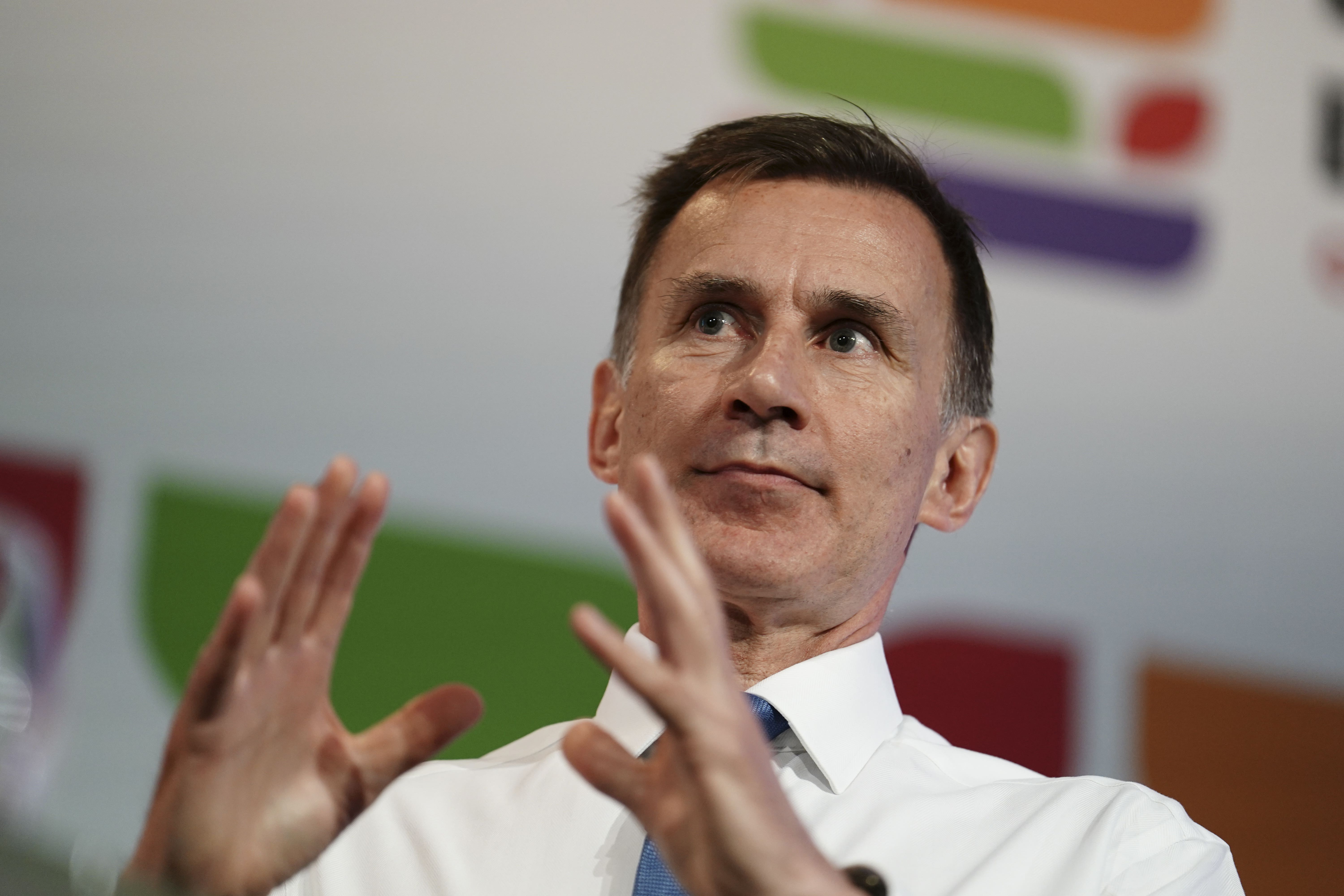Will the chancellor get tough with regulators over price rises?
There could be a chilling effect on supermarkets, water suppliers and energy firms if they feel that Jeremy Hunt’s beady eye is trained on their price-setting, writes Sean O’Grady


Your support helps us to tell the story
From reproductive rights to climate change to Big Tech, The Independent is on the ground when the story is developing. Whether it's investigating the financials of Elon Musk's pro-Trump PAC or producing our latest documentary, 'The A Word', which shines a light on the American women fighting for reproductive rights, we know how important it is to parse out the facts from the messaging.
At such a critical moment in US history, we need reporters on the ground. Your donation allows us to keep sending journalists to speak to both sides of the story.
The Independent is trusted by Americans across the entire political spectrum. And unlike many other quality news outlets, we choose not to lock Americans out of our reporting and analysis with paywalls. We believe quality journalism should be available to everyone, paid for by those who can afford it.
Your support makes all the difference.The chancellor will meet industry regulators on Wednesday to ask them what they’re doing to help win the war on inflation. Rishi Sunak, the prime minister, has already warned retailers about pricing “responsibly and fairly”, adding that household shopping bills had “gone up far too much in the past few months”, hinting that it’s not his fault. Responding to such fears that, for example, the big supermarket groups are taking advantage of the inflationary atmosphere to engage in price gouging and profiteering, Jeremy Hunt is keen to show that he’s in control of events and working hard to help put-upon families. It follows a similar exercise with the banks last week, which has resulted in some limited measures to support mortgage holders in distress.
Who is Hunt chatting to?
The Competition and Markets Authority, Ofgem, Ofwat and Ofcom are the main ones, and he’ll be pushing some politically important messages. Though operationally fairly independent in proactive, the various watchdogs will have to respond to ministerial pressure, and will no doubt redouble their efforts to ask the private sector players not to abuse any market power they possess. Hunt is going a little further than what economists call “moral suasion”, or asking nicely, by using the regulators and the law to intimidate these private sector concerns.
Why now?
Inflation is proving more stubborn than ministers hoped, and there is an increasing chance that Sunak’s promise to bring inflation down to about 5 or 6 per cent by the end of the year will not be kept. The longer inflation persists, the more interest rates will rise and the harder the squeeze on living standards - not propitious conditions in which to win a general election. So ministers are doing whatever they can to exert any downwards pressure on prices.
Is inflation caused by profiteering?
No, but profiteering can be easier in inflationary conditions, at least in the short run, and in markets that are monopolistic or oligopolistic. The Bank of England, possibly thrashing around for an alibi, has suggested that some retailers were increasing prices or failing to pass on lower costs to shoppers so as to rebuild profit margins. The supermarkets plead that their margins are painfully thin, and their vast profits are simply a reflection of the size of their turnover and are needed for further investment. The rise of the discount supermarkets in recent years has probably sharpened competition.
However, it’s fair to say that most markets aren’t any more rigged than they were a few years ago when inflation was at, say, 3 per cent. The war in Ukraine, Brexit, the aftermath of the pandemic and even the trend to earlier retirement have been much more important economy-wide factors.
Will it make a difference?
It could, yes. It might conceivably have a chilling effect on retailers, water suppliers, energy firms and others if they feel that Hunt’s beady eye is trained on their price-setting, and make them think twice for fear of provoking a more searching review of their behaviour by the relevant regulator. But any such effect would probably be confined to a few products and retail sectors; and the energy and rail regulators already effectively dictate most tariffs and fares respectively.
In the case of the banks, whom Hunt met last week, a number of potentially helpful measures of forbearance on repressions and mortgage arrears were agreed, and will be implemented shortly. As with the current round of talks, they won’t end the cost of living crisis, but will be of great help to some, and demonstrate that the government at least recognises the challenges facing so many families.
Join our commenting forum
Join thought-provoking conversations, follow other Independent readers and see their replies
Comments